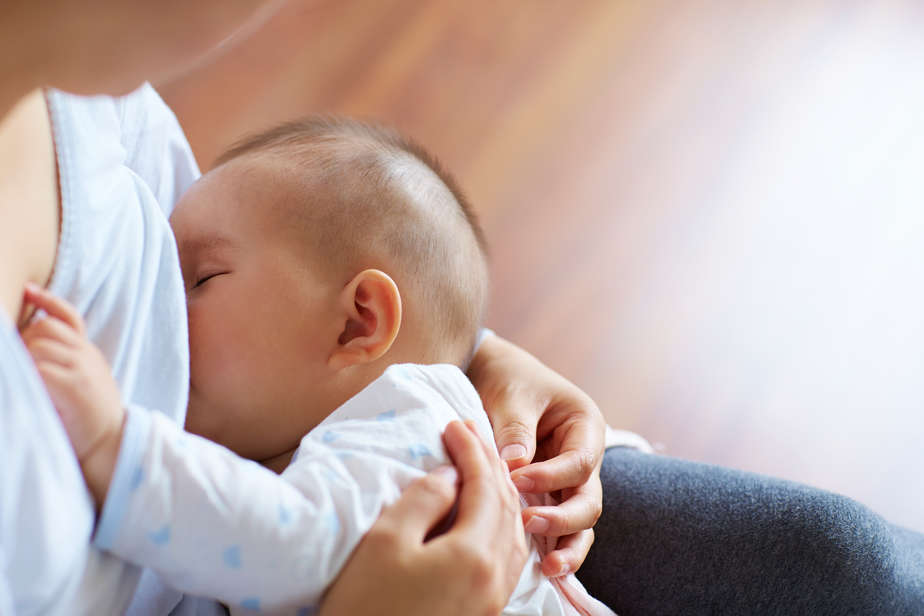That babies have the world to gain from being breastfed for the first six months is well known. But there are health benefits for the mother too, which is why this bounty of Nature must not be frittered away
During World Breastfeeding Week, it’s surprising to know that a cosmopolitan city like Delhi is among the five worst performing states when it comes to babies being nursed in the first hour of birth. Only 29.9 per cent of babies in both Delhi and Punjab get the ‘first milk’ or colostrum that will boost their immune system for life. This is only slightly better than Uttarakhand (28.8 per cent), Rajasthan (28.4 per cent) and Uttar Pradesh (25.4 per cent).
This is really surprising as colostrum is rich in antibodies or protective factors, which will boost the baby’s immune system for the delicate years ahead. WHO has also found evidence “that skin-to-skin contact between mother and infant shortly after birth helps to initiate early breastfeeding and increases the likelihood of exclusive breastfeeding for one to four months of life as well as the overall duration of breastfeeding. Infants placed in early skin-to-skin contact with their mother also appear to interact more with their mothers and cry less.”
I made a personal choice to breastfeed both my kids as there are as there are amazing benefits for both mother and child. Yes, the mother too benefits, and this is not so well known. It burns calories, so it helps lose the weight you put on during pregnancy faster. The hormone oxytocin is released, which helps the uterus return to its original size and may reduce bleeding after birth. On top of that, it lowers the mother’s risk of osteoporosis, breast and ovarian cancer.
Being a dentist, I knew that nursing your newborn also has dental benefits: Studies show the link between breastfeeding and improved development of the oral cavity. Your baby will have lower risk of misaligned teeth or jaw, since breast feeding requires greater use of jaw muscles than bottle feeding.
One of Delhi’s top paediatricians, Dr Vidya Gupta, who practices at Apollo, says that even educated people these days don’t know that ‘first milk’ is good for the baby, and have to be persuaded. “Also, young mothers tend to think that their milk is not enough – because everybody around keeps telling them that the baby is crying due to hunger. This is why they feel pressurised to supplement breast milk with top feed,” she says.
This is frowned upon by the medical establishment, which recommends exclusive breastfeeding for the first six months —no juice, no formula, not even water to be given to the baby. So why is it that so many mothers don’t stick to this rule? It is not it is not due to any traditional taboo but due to modern-day problems. Often, mothers are in poor health or lack time due to work. In the old days, there were simple home remedies to increase the supply, and no shame attached to breastfeeding in public. But now mothers are failing to do the best by their babies due to societal pressure and lack of guidance. And this is true of upper class mothers as well. If only they followed the rule, their babies would have fewer ear infections, respiratory illnesses and bouts of diarrhea.
Dr Gupta also feels that six months maternity leave is not enough, as breastfeeding for upto a year is best for both mother and child. “Working mothers do breastfeed for the duration of their leave, and some also express milk into bottles for the baby to be given later,” she has observed.
In tropical climates, there is also the question of hygiene. If a mother is breastfeeding, she has less to worry about in terms of infection and germs. She does not have to go to the kitchen to sterilise bottles and nipples, prepare milk from powder, thus saving precious time and money. This gives her time to recuperate from the delivery, relax and bond with her baby.
So it’s imperative to spread awareness and go back to how Nature intended it to be because adequate breastfeeding leads to 28 per cent reduction in breast cancer, 21 per cent in ovarian cancer, and up to 12 per cent drop in Type II diabetes. And yes, it does burn calories, provided we don’t gorge on panjeeri, ghee ke laddoo and other sweets given by mothers-in-law.
Dr Reshma is an advocate of wellness, prevention and holistic health. Instagram handle: dr.reshmakhattarbhagat





